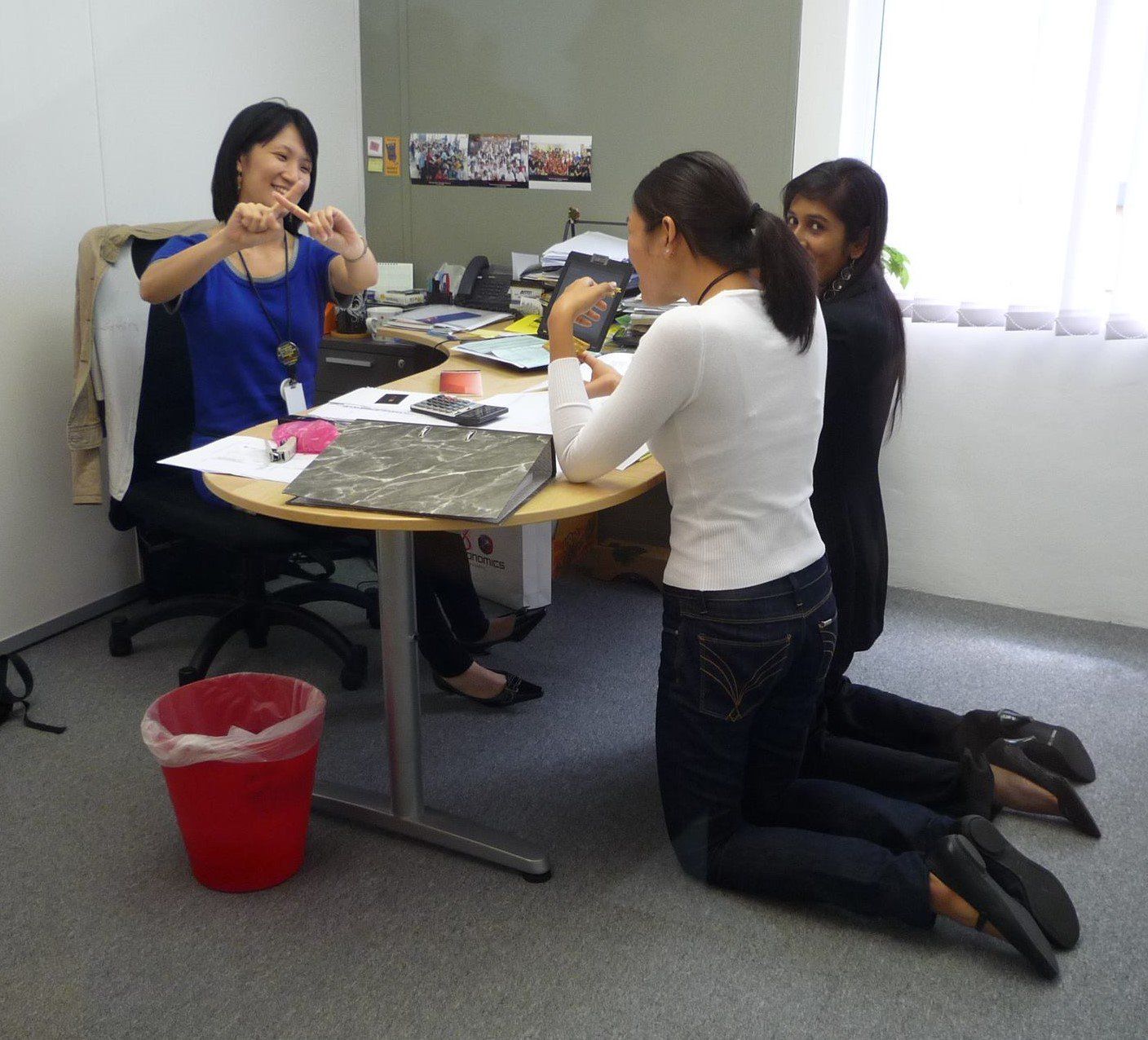The 5 Challenges Hybrid Teams Face

Hybrid models of working for teams are here to stay. While there are plenty of benefits to adopting a hybrid team work model in your workplace, there are a set of predictable challenges that without awareness and understanding, can impact how your team connect and how work is done. In the same way that challenges of disengagement, group-think and feedback present themselves in a typical office environment. Understanding the key challenges faced by hybrid teams allows you an opportunity to be proactive in the way your team is set up for success through a hybrid model.
Challenge #1: Lack of collaboration.
One of the biggest fears of adopting a hybrid approach is that individuals will work…well individually. In September 2020, we conducted a State of Remote Work survey with over 300 respondents; 47.7% found that collaboration between teams to be the biggest challenge in navigating remote work. Without the ad-hoc cross pollination that can occur more organically in an office setting, or the pull towards collaborative problem-solving or project coordinating across divisions the is one of the challenges that’s worth addressing.
Collaboration is more than the structures and rhythms that happen in a specific location. Often true and effective collaboration requires high levels of trust and care. When we understand this, we can then be conscious about cultivating these in a new format of working.
Strategies to help address this challenge start with caring about collaboration, it needs to be something that matters to your team in order to people to prioritise it in their work. Upgrade the resources and platforms you utilise for collaboration conversations and work. Platforms such as ‘Miro’ provide a space for teams to co-create and dive into collaboration conversations.
Challenge #2: Stagnation (the opposite of ideation)
The world of work requires innovation and change, one of the challenges for hybrid working teams is stagnation – getting caught in the pattern of doing what we’ve always done. Habits and rhythms are hard to break, and can feel harder to do en-masse if the teams are operating in hyrbid fashion. One of the key things to recognise before addressing this challenge, is that ideation and innovation was a challenge even when teams were co-located. Group think or ego’s pulled down the courage that is required to think differently.
In order to address this challenge teams need to start by innovating their innovation process. Create a mix of both synchronous (do it at the same time) and asynchronous (do it at a time when individuals are at their best) work. Share challenges, share ideas and then allow people to do the deep thinking work in a way that best works for them. Encourage movement throughout the day to help with brain functioning to think differently. Finally create rhythms to stop (the BAU work), calibrate (what are we trying to achieve here), and celebrate (where have we gotten to in this process).
Challenge #3: Disconnection
In hybrid teams there are fewer opportunities for the whole team to be connected in the space. The challenge of disconnection is greater than just not being in the same space though, it’s the challenge of feeling mentally and physically separate and alone, isolated and removed. Disconnection can undermine culture and trust quickly if not noticed or addressed.
Create a culture of checking in with others. Ask the question ‘are you okay?’ and have this common practice via different communication mediums (e.g. phone, video call, text message, internal messaging systems) helps to reduce the impact this challenge can have. Work on creating face-to-face time and create spaces to celebrate and talk about both work milestones achieved and life milestones achieved.
Challenge #4: Miscommunication
Communication is hard even in the best of circumstances, throw in technology difficulties, drop-outs, different work schedules, second-guessing the context for others and it can become a minefield. Confusion, misinterpretation, and heightened frustration as a result can be the outcomes, which doesn’t bode well for team success.
In order to address this challenge, double down on communication skills. Take the time to check for understanding, paraphrase and summarise conversations before moving on will be time well spent. One of the reasons miscommunication can occur is due to the extreme lack of non-verbal cues in a hybrid team. You’re relying on the face-value of text-based conversations and video conference calls held on an unreliable internet connection, mistakes will be made.
It’s important to address the story in your head anytime this comes up for your hybrid team. Question your assumptions and make use of Brene Brown’s wisdom from her TED Talk on vulnerability.
Challenge #5: Teams adopt a contractor mindset
As mentioned previously, when hybrid teams become increasingly distant they can begin adopting the mindset of contractors. While having control over individual work routines and daily schedules can be useful, it can lead to a feeling of disconnection from the organisation as a whole.
Commit to working on your hybrid team culture, continually discuss your company values, purpose and other cultural trademarks you’ll be able to retain a sense of belonging in a hybrid work environment.
The five challenges hybrid teams face in the early days (and months after the switch). Hybrid teams, like all workplace teams, need to be consistently reminded of the purpose they hold in the wider organisation. If you can commit to this, and the aforementioned behaviours, you’ll be well on your way to creating a high performing hybrid team.
Business
Tags: Alignment & Clarity





